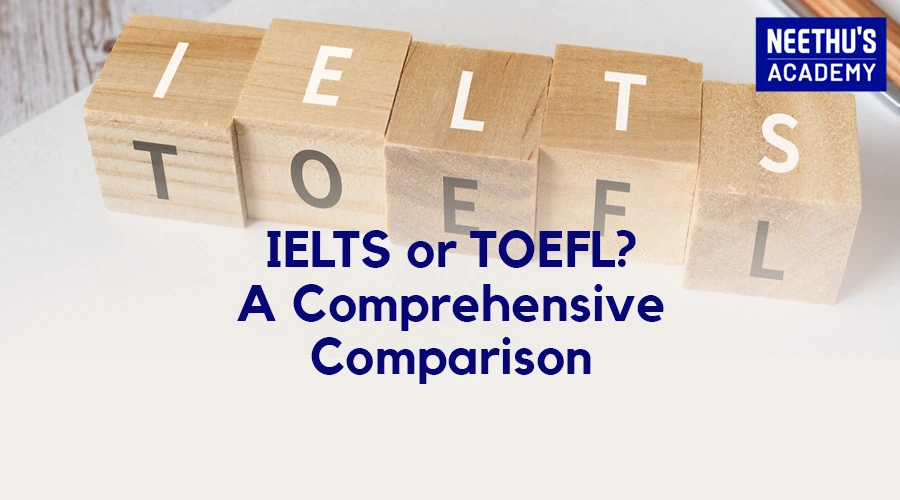Top TOEFL Reading Tips to Boost Your Score
Preparing for the TOEFL reading section is one of the most difficult tasks for most students whose native language is not English. The section assesses a student’s ability to understand and analyze complex academic texts, which may be accomplished through practice, strategy, and time management. this blog outlines the best techniques, common mistakes that must be avoided, and advice on how to utilize coaching as a performance enhancement for taking the test.
TOEFL, or Test of English as a Foreign Language, is one of the most accepted tests for a native speaker looking to study or work in another country where English is the dominant language. To score well on the reading part of the TOEFL can make for a decent foundation toward performing well on the test. Here in this blog post, we will outline some of the key strategies and helpful tips for preparing for the reading section and then getting your best performance on test day.
Understanding the TOEFL Reading Section
The Reading section of the TOEFL is supposed to measure how well the candidate can understand and analyze college-level academic texts. There are three to four passages, running around 700 words each. For each of them, there are 10 questions. Each passage will be on a different topic, history, science, social science, or humanities. Though the topics might differ, the vocabulary, structure, and, above all, the language is exactly like that used in scholarship; hence, familiarity with scholarly language would prove very useful.
Types of questions in the reading comprehension:
Factual information: The questions are about retrieving specific details from the text.
Inference Questions: Deducing information that is not explicitly stated
Vocabulary Questions: You will be asked to define words or phrases based on the context.
Purpose Questions: These ask for the intention or purpose of an author concerning a specific sentence or paragraph
Reference Questions: Assess understanding of the relationships between ideas or pronouns and their antecedents.
Sentence Insertion Questions: Ask you to figure out where a given sentence should be placed.
Summary and Categorization Questions: Help you decide whether you have grasped the main ideas and supporting details.
Being aware of the types of questions will help you know how to change your approach, and practice for answering each question. It will also make your overall comprehension stronger.
Time Management and Grading
In the TOEFL Reading section, you are provided with 54 to 72 minutes, depending on the number of passages provided, which are usually three to four passages. In that time, you will have approximately 18 minutes per passage. Thus, you need to make effective use of your time. The score range in the reading section is 0 to 30. Each right answer carries equal points in determining your final score.
The only way to be efficient is by successfully implementing time management strategies. Take a few minutes to glance down through the reading passage to look for the major ideas before you begin to do the questions. Take your time carefully on difficult questions but rush through easy ones.
Essential TOEFL Reading Tips for Success
Skim for Major Ideas and Key Points
Begin by scanning each passage before reading the questions. Scan for a sense of purpose for each paragraph, as well as what words, names, dates, or events appear. Reading for structure over detail helps you get the general feel of information flow and what the author is trying to do. Then, reading the questions, you’ll know where that information is.
Practice scanning for specific information
Scanning is an important technique to speedily search for answers within the text. In answering a question, as you answer it, identify keywords or phrases in the question and scan the passage to look for that information. Using keywords to anchor your search means you can find the answer without reading every word in the text. It works very well when you are asked for factual information questions where you are asked directly to retrieve factual details.
Comprehending the Question Types
Each question type on TOEFL Reading is unique. Here’s how you might approach some of the most common types:
Informational Facts: Refer back to the text and locate the exact line or paragraph.
Inference: Seek hints and inferences rather than explicit statements.
Vocabulary: Reread the sentence where the word appears that you’re being questioned about and the lines surrounding it for clue context.
Purpose: Understand what is the overall argument the author is writing or the author’s view.
Knowing the type of question will save you time, and you will be able to use a specific approach for each. Therefore, you get a higher probability of getting the correct answer.
Expand Your Lexicon for Better Understanding
Vast vocabulary is a necessity for reading academic passages. Attempt to learn the most frequently used words in an academic piece, especially science, history, and humanities. You can use the resources of word lists or flashcards. Learn to read academic articles or essays for memorization and nuance.
Use Elimination for Inference Questions
Inference questions are common in the TOEFL Reading section. Often the differences in answer choices are slight and hard to notice. Eliminate the answer choices that do not work in the context of the entire passage. Then read the area of the relevant passage again and consider what the author is suggesting. You’ll be able to cut through choices and improve your success rate on these harder questions with elimination.
Practical Exercises to Improve TOEFL Reading Skills
Timed Practice with Reading Passages
Another high-value preparation is timed practice with authentic TOEFL reading passages. Use a timer and set it at 18 minutes per passage, answer all questions related to it within that time, and gradually you will build the speed and accuracy required for this section.
Summarizing and Paraphrasing Exercises
Another good technique to improve your reading comprehension is summarizing and paraphrasing. Try to restate the main points of the passage in your own words after you read it. This exercise really forces you to pay attention to understanding and retaining information, which then appropriately helps you answer the summary and inference questions.
Read each passage and make a summary in a reading journal. That would help to enhance comprehension while reinforcing vocabulary and the central ideas.
Common Mistakes to Avoid in the TOEFL Reading Section
Reading too slowly
Spending too much time on each passage will deny you enough time to finish the section. Don’t read every line for details; instead, read strategically. Concentrate on getting the big picture and purpose, and then head to questions that will allow you to refer back for specific information.
Not Reviewing Answer Choices Carefully
Many students rush through the answer choices without taking the time to understand each one. Read each of the options slowly and carefully and check it with correctness according to the passage. At times, the slight variation in wording might affect whether an option is wrong or right, therefore don’t assume but read all the choices correctly before one makes a choice.
Lack of Vocabulary Preparation
Vocabulary is a huge part of the reading section of the TOEFL test, so if you bypass vocabulary study, your attempt at understanding the passages or answering vocabulary questions may be very limited. Set aside time daily to go through academic vocabulary as well as learn how to figure out the meanings based on context.
Best Coaching Centre in Kerala
Neethu’s Academy is considered to offer the best TOEFL coaching in Kerala as they provide their students with expert instructors along with personalized feedback and rich study materials. Neethu’s Academy has a fine record of success and is at the top of the list for TOEFL coaching institutes, thereby attracting many TOEFL aspirants. With targeted instruction and individualized support, Neethu’s Academy readies students for success.
Conclusion
Achieving a good mark in the reading section of the TOEFL demands much more than competence in the English language, it demands strategy on each passage and type of question. To ace the reading section one should develop skimming and scanning as well as elimination skills that enhance understanding and effectiveness in the reading area. This can be improved by avoiding common mistakes and attaining coaching support through an institution like Neethu’s Academy in Kerala. Through frequent practice, well-strategized moves, and the proper resources available, you will be set up to win the TOEFL Reading section.
Frequently Asked Questions





